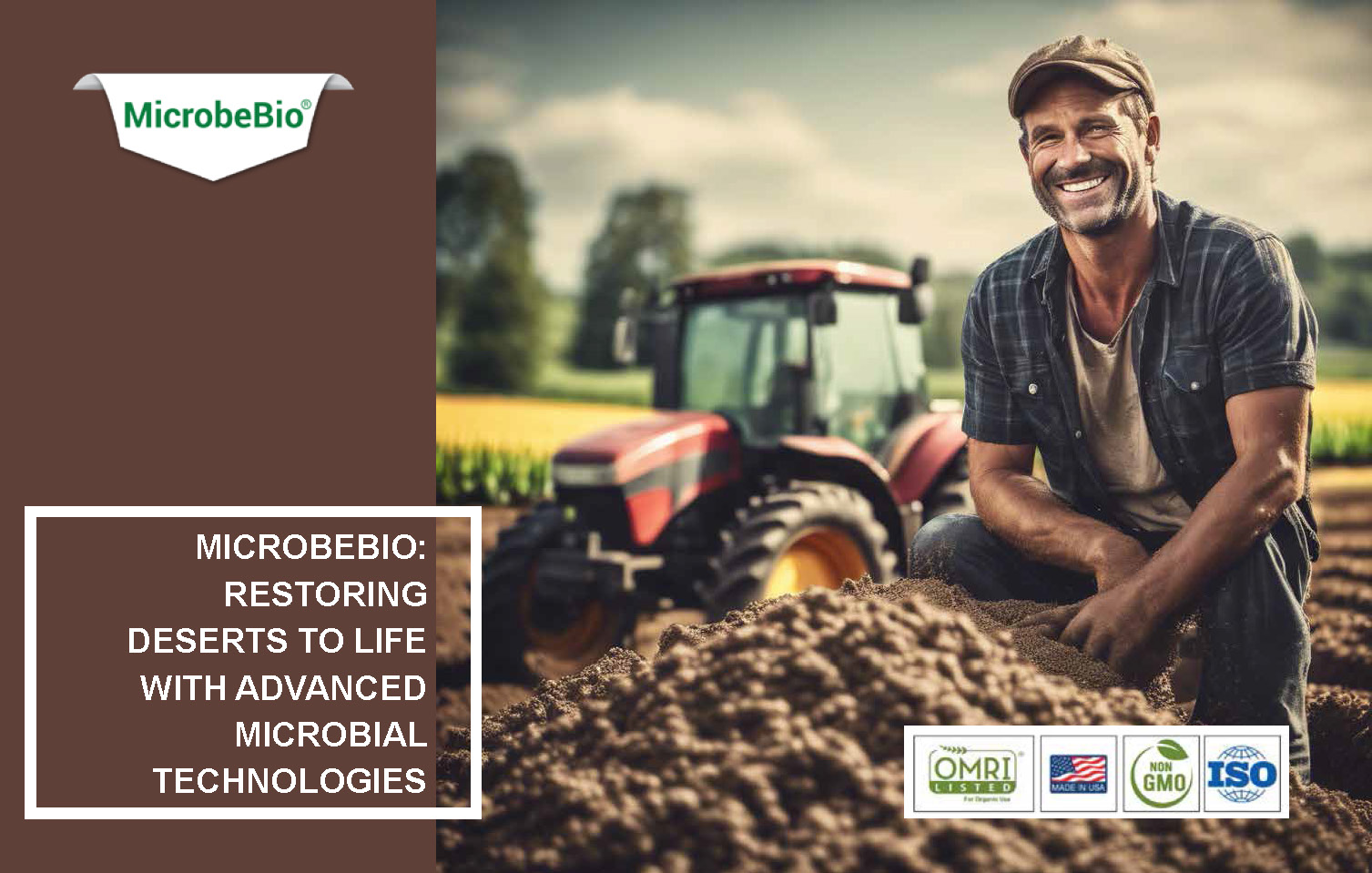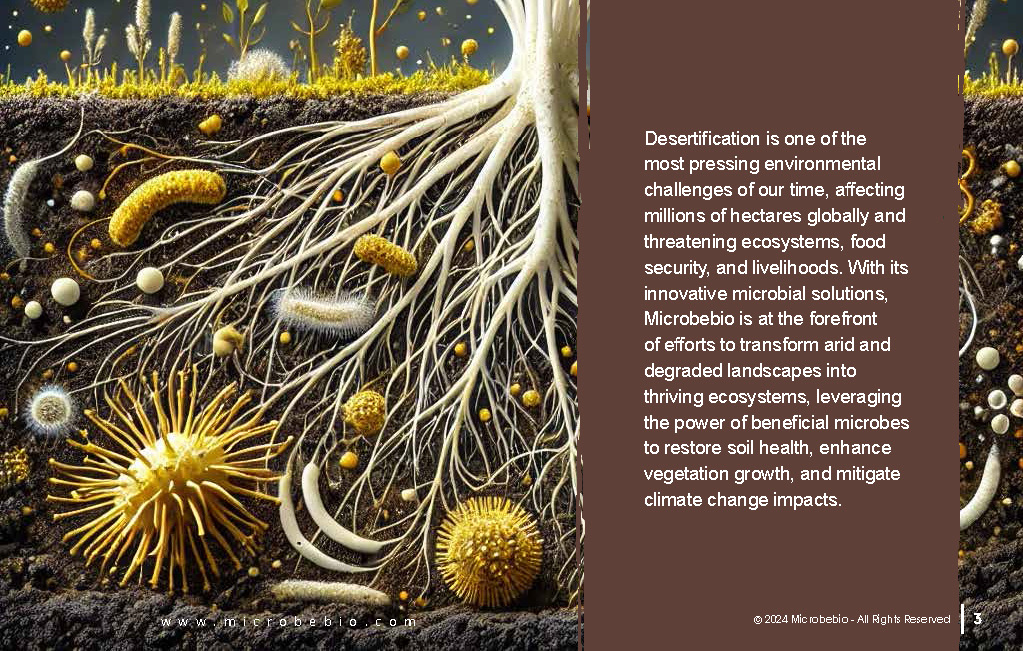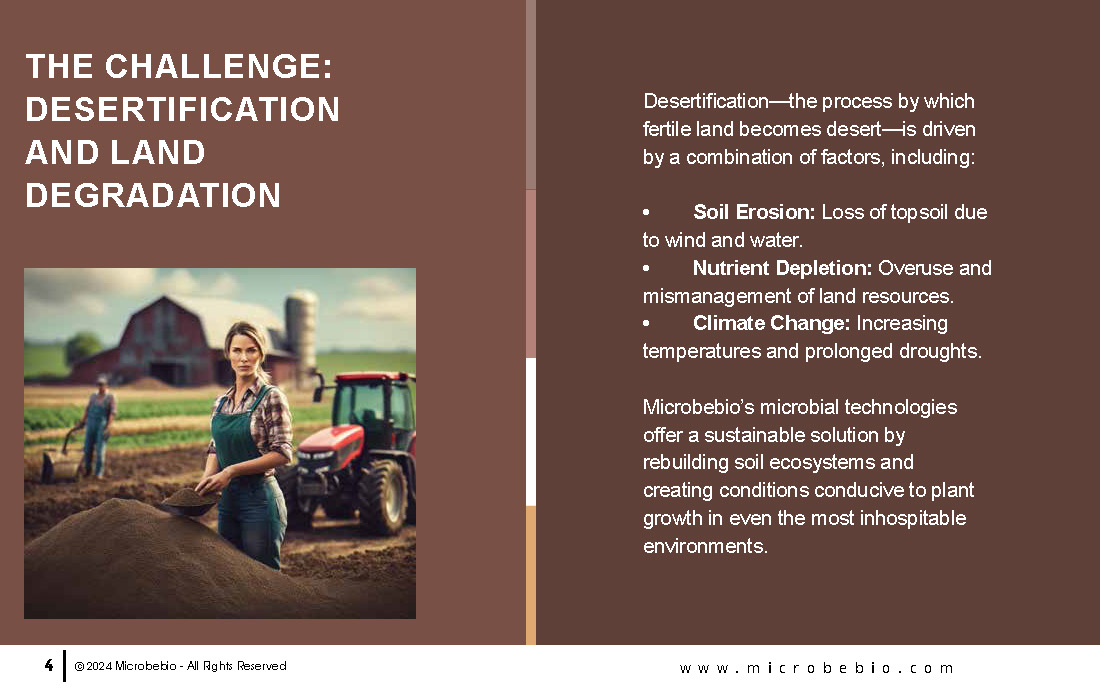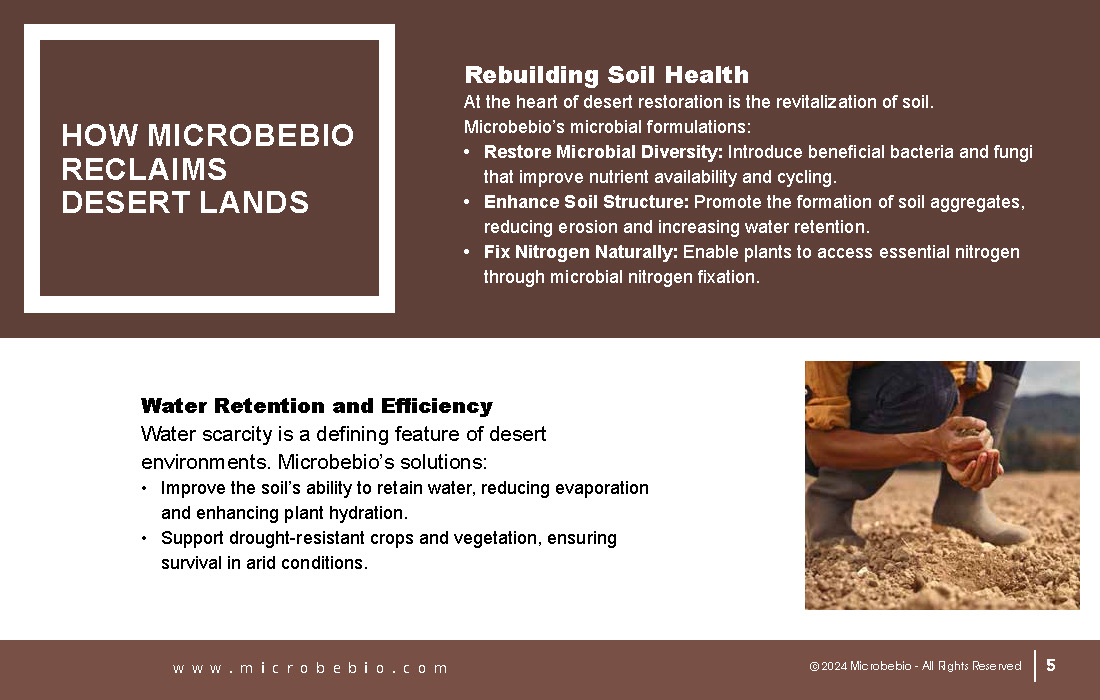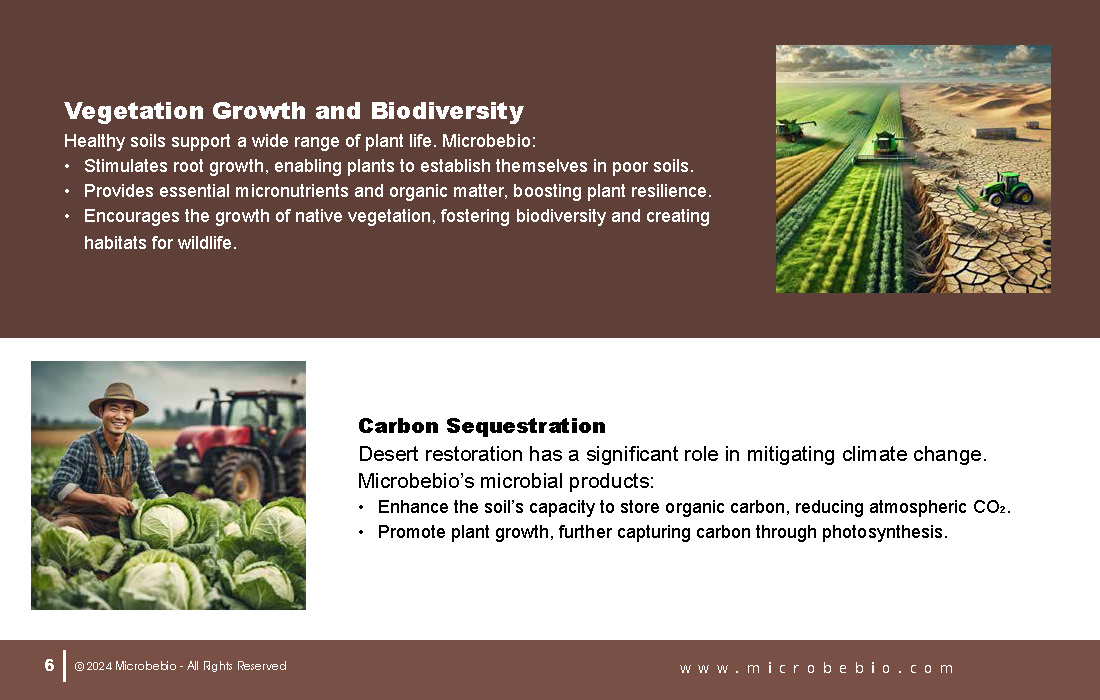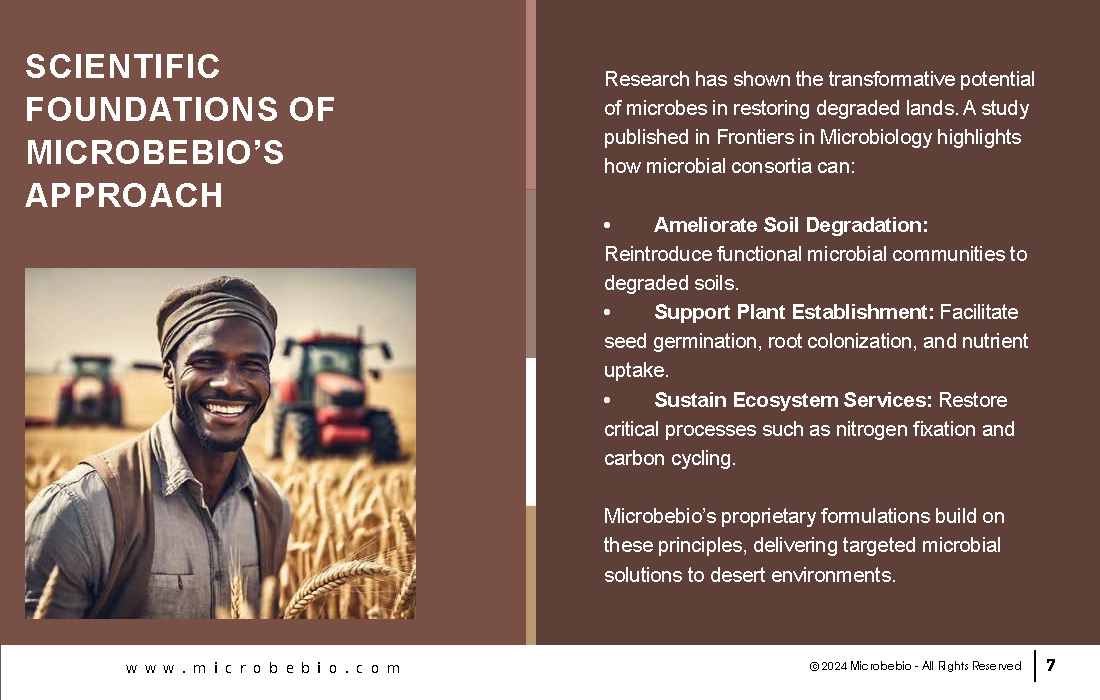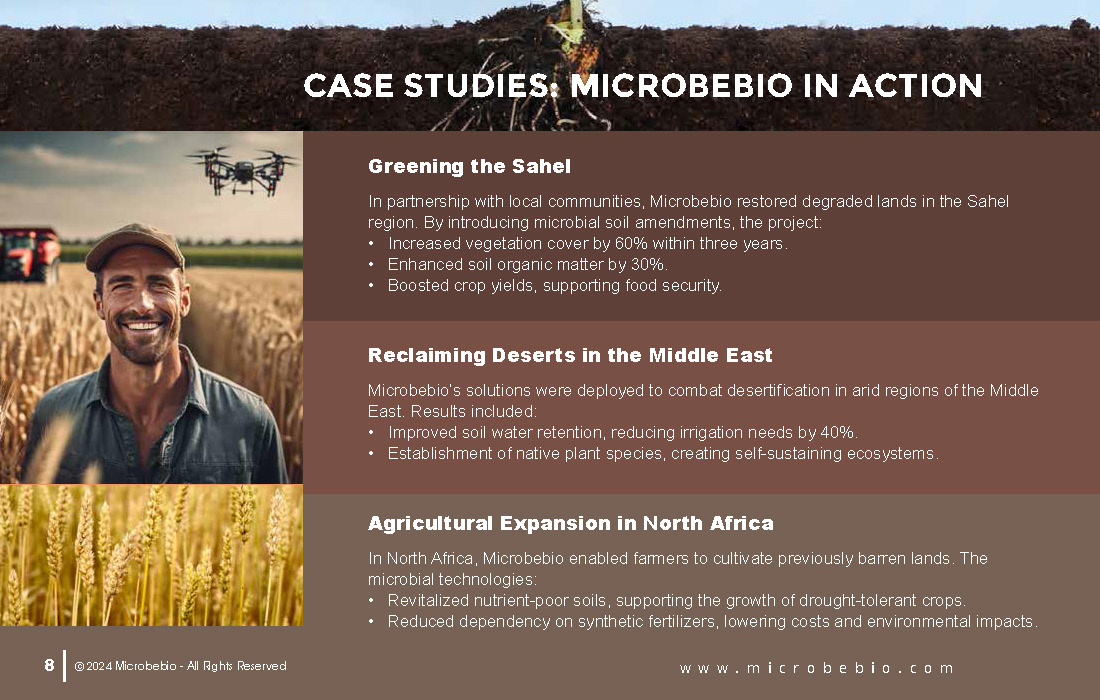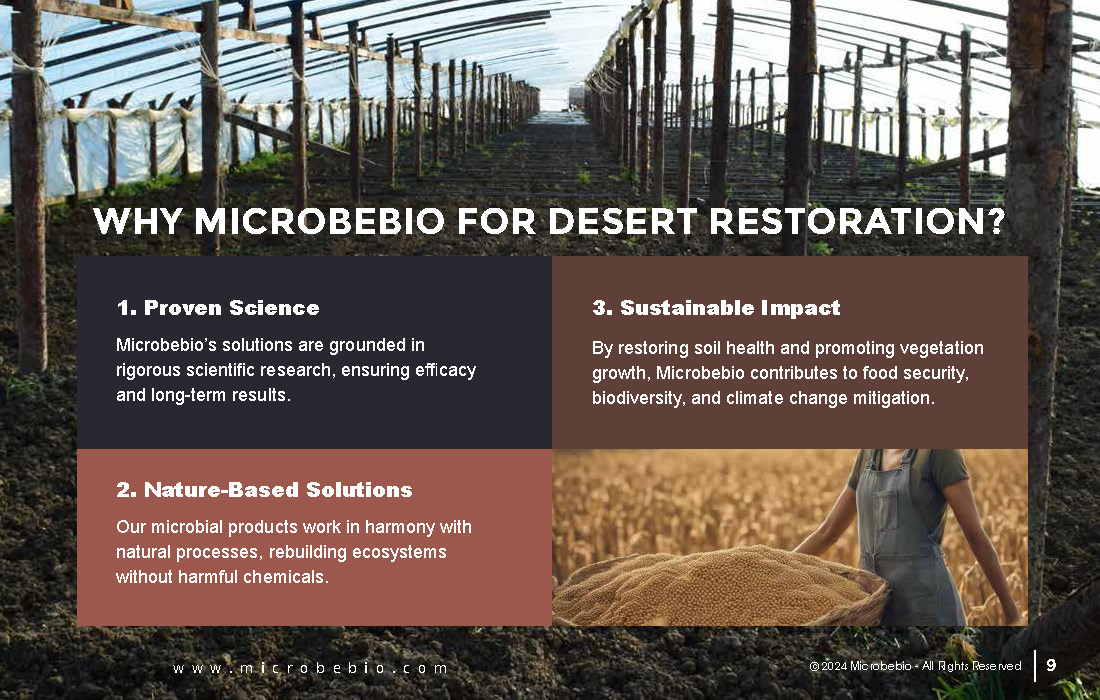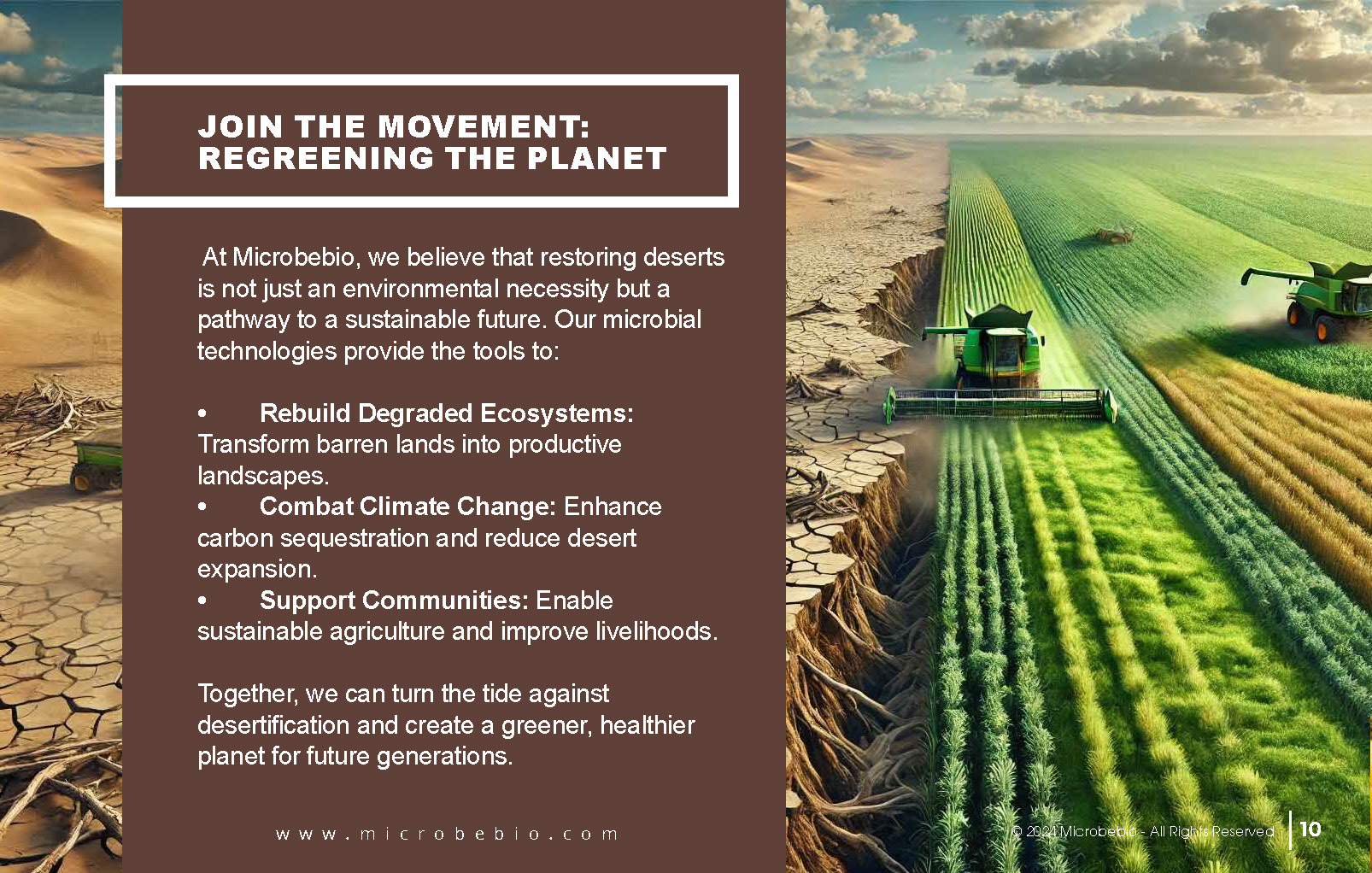Microbebio: Restoring Deserts to Life with Advanced Microbial Technologies
Desertification is one of the most pressing environmental challenges of our time, affecting millions of hectares globally and threatening ecosystems, food security, and livelihoods. With its innovative microbial solutions, Microbebio is at the forefront of efforts to transform arid and degraded landscapes into thriving ecosystems, leveraging the power of beneficial microbes to restore soil health, enhance vegetation growth, and mitigate climate change impacts.
The Challenge: Desertification and Land Degradation
Desertification—the process by which fertile land becomes desert—is driven by a combination of factors, including:
- Soil Erosion: Loss of topsoil due to wind and water.
- Nutrient Depletion: Overuse and mismanagement of land resources.
- Climate Change: Increasing temperatures and prolonged droughts.
Microbebio’s microbial technologies offer a sustainable solution by rebuilding soil ecosystems and creating conditions conducive to plant growth in even the most inhospitable environments.
How Microbebio Reclaims Desert Lands
- Rebuilding Soil Health
At the heart of desert restoration is the revitalization of soil. Microbebio’s microbial formulations:
- Restore Microbial Diversity: Introduce beneficial bacteria and fungi that improve nutrient availability and cycling.
- Enhance Soil Structure: Promote the formation of soil aggregates, reducing erosion and increasing water retention.
- Fix Nitrogen Naturally: Enable plants to access essential nitrogen through microbial nitrogen fixation.
- Water Retention and Efficiency
Water scarcity is a defining feature of desert environments. Microbebio’s solutions:
- Improve the soil’s ability to retain water, reducing evaporation and enhancing plant hydration.
- Support drought-resistant crops and vegetation, ensuring survival in arid conditions.
- Vegetation Growth and Biodiversity
Healthy soils support a wide range of plant life. Microbebio:
- Stimulates root growth, enabling plants to establish themselves in poor soils.
- Provides essential micronutrients and organic matter, boosting plant resilience.
- Encourages the growth of native vegetation, fostering biodiversity and creating habitats for wildlife.
- Carbon Sequestration
Desert restoration has a significant role in mitigating climate change. Microbebio’s microbial products:
- Enhance the soil’s capacity to store organic carbon, reducing atmospheric CO₂.
- Promote plant growth, further capturing carbon through photosynthesis.
Scientific Foundations of Microbebio’s Approach
Research has shown the transformative potential of microbes in restoring degraded lands. A study published in Frontiers in Microbiology highlights how microbial consortia can:
- Ameliorate Soil Degradation: Reintroduce functional microbial communities to degraded soils.
- Support Plant Establishment: Facilitate seed germination, root colonization, and nutrient uptake.
- Sustain Ecosystem Services: Restore critical processes such as nitrogen fixation and carbon cycling.
Microbebio’s proprietary formulations build on these principles, delivering targeted microbial solutions to desert environments.
Case Studies: Microbebio in Action
- Greening the Sahel
In partnership with local communities, Microbebio restored degraded lands in the Sahel region. By introducing microbial soil amendments, the project:
- Increased vegetation cover by 60% within three years.
- Enhanced soil organic matter by 30%.
- Boosted crop yields, supporting food security.
- Reclaiming Deserts in the Middle East
Microbebio’s solutions were deployed to combat desertification in arid regions of the Middle East. Results included:
- Improved soil water retention, reducing irrigation needs by 40%.
- Establishment of native plant species, creating self-sustaining ecosystems.
- Agricultural Expansion in North Africa
In North Africa, Microbebio enabled farmers to cultivate previously barren lands. The microbial technologies:
- Revitalized nutrient-poor soils, supporting the growth of drought-tolerant crops.
- Reduced dependency on synthetic fertilizers, lowering costs and environmental impacts.
Why Microbebio for Desert Restoration?
- Proven Science
Microbebio’s solutions are grounded in rigorous scientific research, ensuring efficacy and long-term results.
- Nature-Based Solutions
Our microbial products work in harmony with natural processes, rebuilding ecosystems without harmful chemicals.
- Sustainable Impact
By restoring soil health and promoting vegetation growth, Microbebio contributes to food security, biodiversity, and climate change mitigation.
Join the Movement: Regreening the Planet
At Microbebio, we believe that restoring deserts is not just an environmental necessity but a pathway to a sustainable future. Our microbial technologies provide the tools to:
- Rebuild Degraded Ecosystems: Transform barren lands into productive landscapes.
- Combat Climate Change: Enhance carbon sequestration and reduce desert expansion.
- Support Communities: Enable sustainable agriculture and improve livelihoods.
Together, we can turn the tide against desertification and create a greener, healthier planet for future generations.
Trending Hashtags
#Microbebio #DesertRestoration #Regreening #SoilHealth #ClimateAction #SustainableFarming #Biodiversity #CarbonSequestration #EcoInnovation #RestoreTheEarth
